
Smile In An Hour: Full Mouth Dental Implants
Walk out of our clinic in just one hour with a brand new smile and your confidence back
- Eat the foods you love again
- Smile & Laugh with a new confidence
- Replace decayed/missing teeth
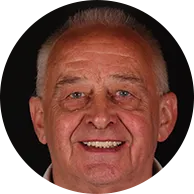
“All the staff are friendly and helpful and I have received excellent care throughout. It was a big decision to go for this treatment and I have absolutely no regrets about doing it."
Edward S. ⭐ ⭐ ⭐ ⭐ ⭐
Book Your Free Consultation Now
We are proud to say we have never
had anything other than a 5* Review



What is the 21D
Solution?
The 21D solution is our own fully digitally planned and guided process that enables us to provide you with your implants abd your working prosthetic teeth in under one hour per jaw.
Your new teeth are produced in advance, entirely from the scans that we take of you at your free assessment. This means surgery time can be reduced from a full day to one hour.
Small CallThe 21D solution is our own fully digitally planned and guided to Action Headline
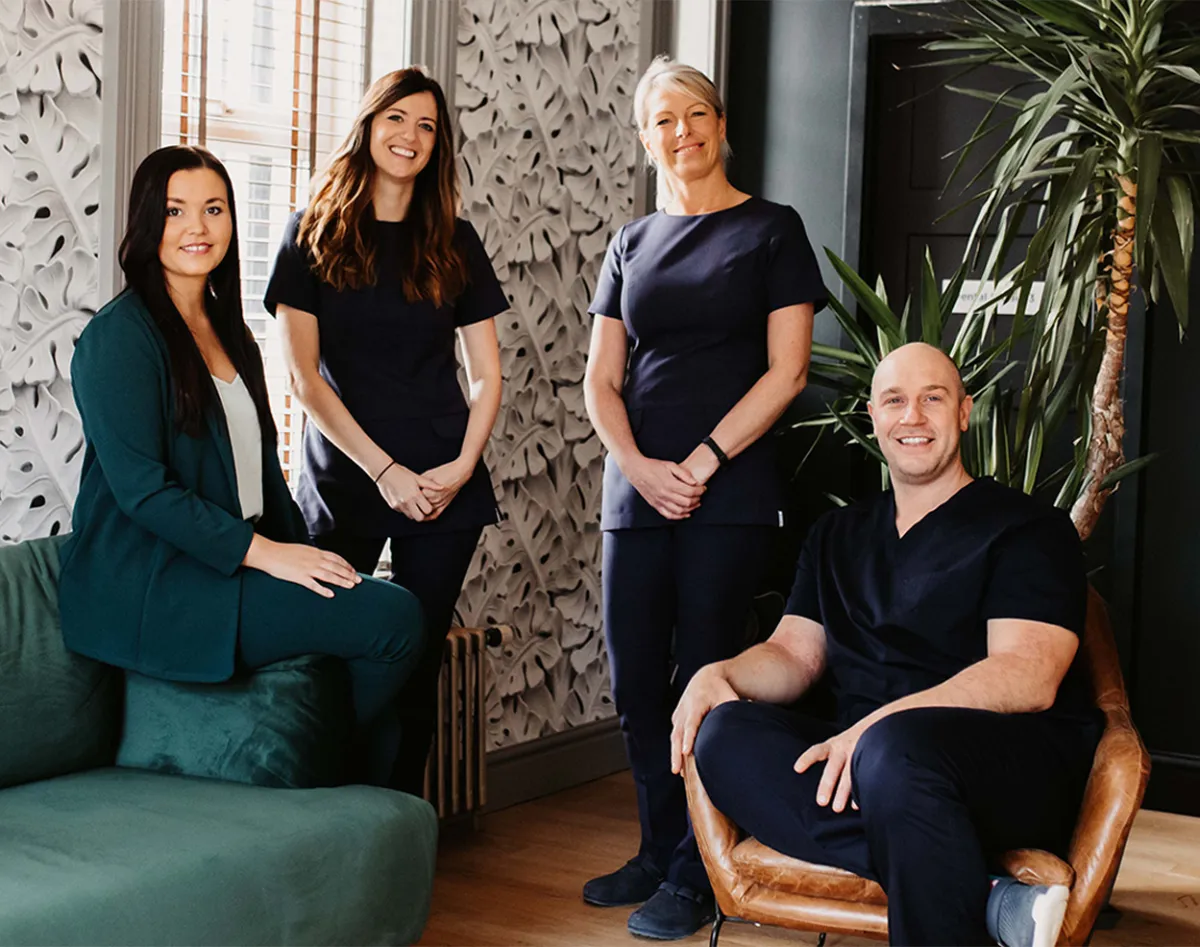
What is the 21D
Solution?

The 21D solution is our own fully digitally planned and guided process that enables us to provide you with your implants abd your working prosthetic teeth in under one hour per jaw.
Your new teeth are produced in advance, entirely from the scans that we take of you at your free assessment. This means surgery time can be reduced from a full day to one hour.
Life-Changing Mouth Transformation


Betore & After
Full Mouth Dental Implants
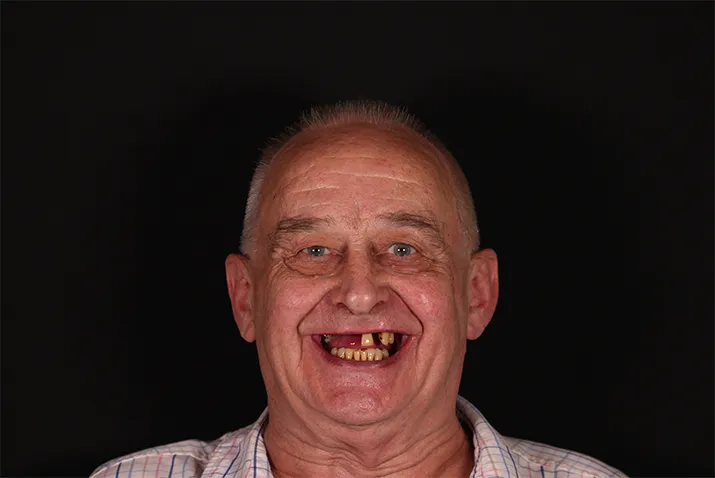

Betore & After
Upper Jaw Dental Implants

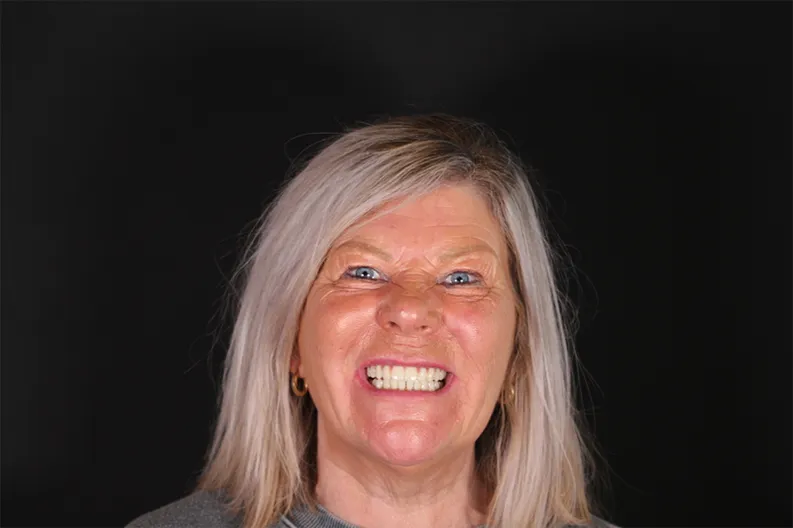
Betore & After
Lower Jaw Dental Implants
Comparison Table vs All-on-4
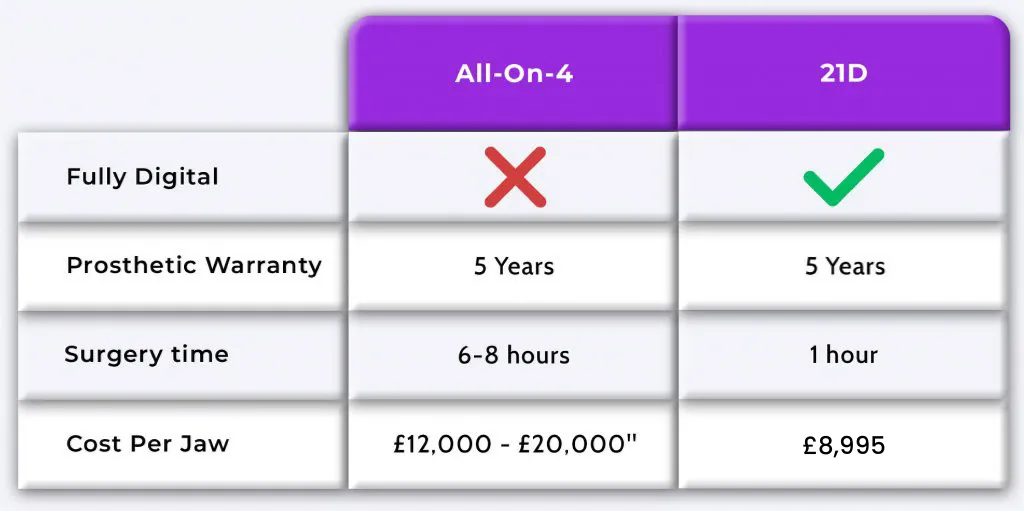
Simple, Unbeatable Pricing
Not only does the 21D Solution save you time and hassle, it is designed to save your money. Because of the efficiency and predictability of the procedure. we can hugely reduce the significant labour costs of dental implant and pass those savings to our patients.
Single Jaw
£8,995
or
£149.91 per month
Both Jaws
£16,995
or
£283.25 per month
Book Your Free Consultation Now
Meet Your Doctor
DR. DAVID VEIGE DD,
BDS, MJDF (RCS. ENG.), MSC. IMPLANTOLOGY
In 2000 Dr David Velge began his education as a dental technician at George Brown College in Toronto. Moving to the UK he studied Dentistry at the University of Newcastle. He trained as a dental technician, being responsible for the fabrication of highly aesthetic
crowns, veneers and implant restorations.
After his graduation, Dr Veige completed a Master of Science degree in Implantology. This means he has skills as both a dental technician and an implant surgeon {which is a rare combination among dentists in the UK} This gives him a unique and advanced perspective on dental artistry.
Dr Velge has a particular interest in minimally invasive guided implant dentistry. This technology uses specialized implant planning software and guides to accurately, safely and painlessly place dental implants to restore natural smiles. Because of Dr Veige's methods our clinicians complete full jaw dental implants in just one hour.
With a dental laboratory, implant clinic and educational facility,Dr Veige teaches implant dentistry or dentists across the UK, he is a leader in the industry of clinical dentistry, a lecturer, clinical mentor to dentists
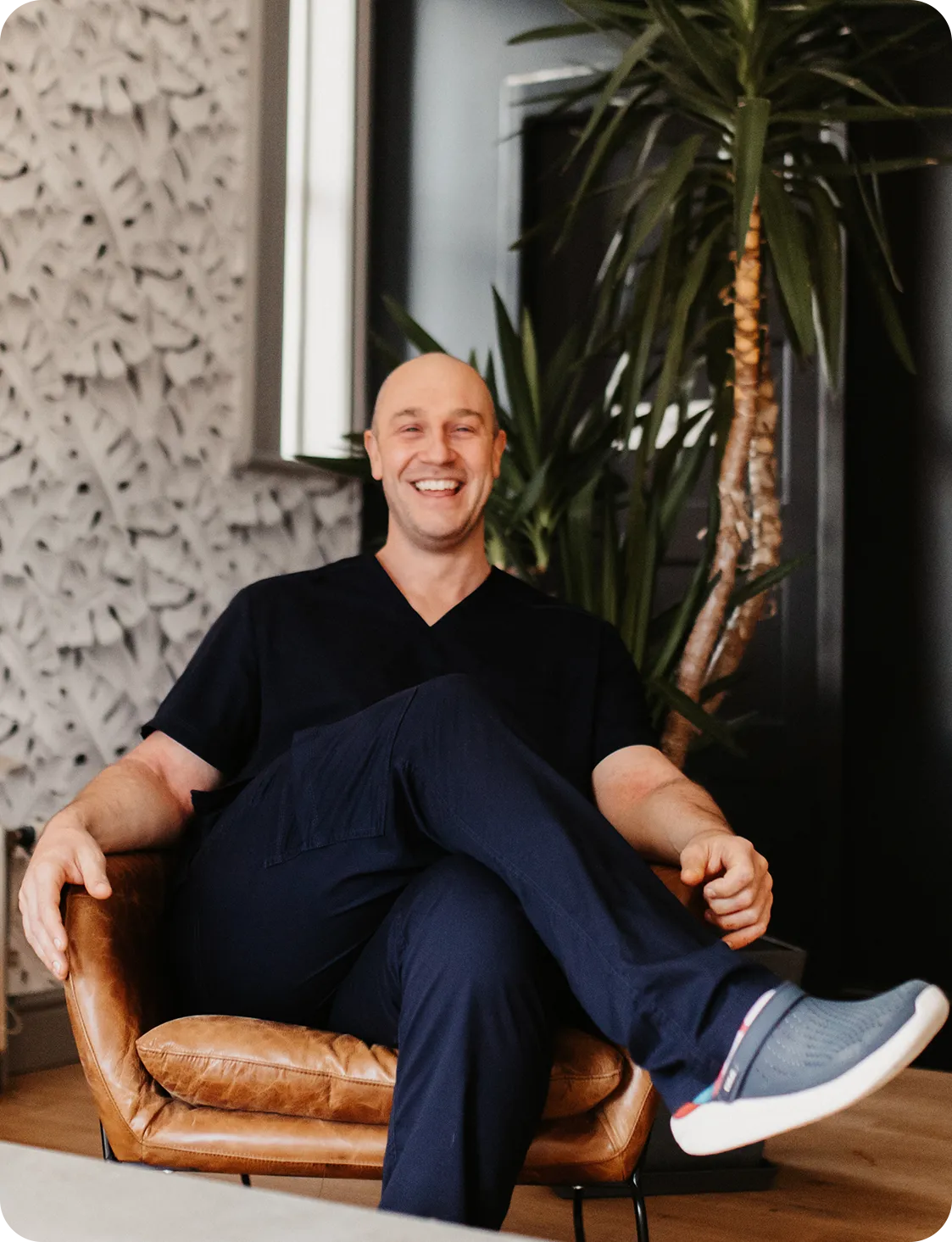
Here's what our patients have to say:
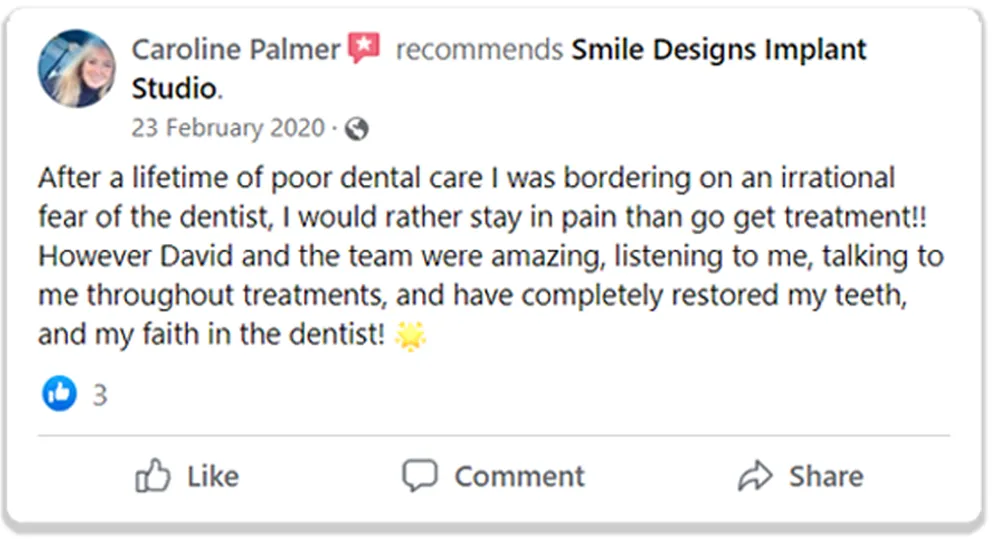
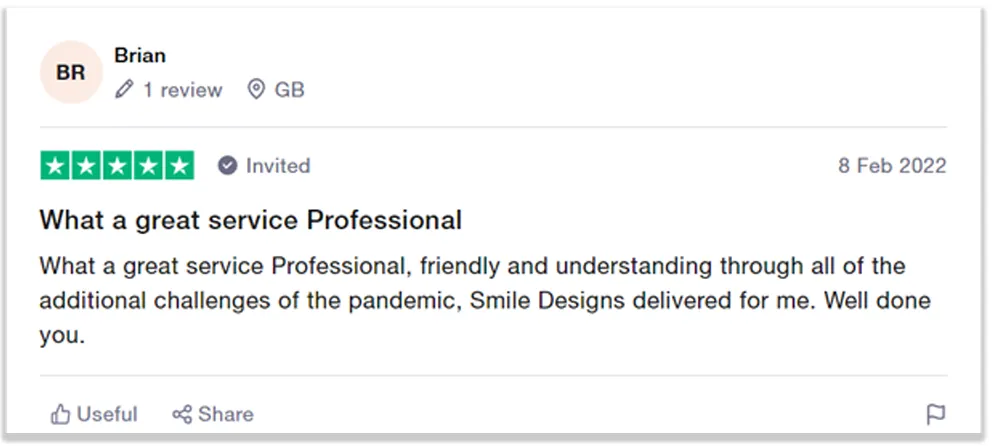
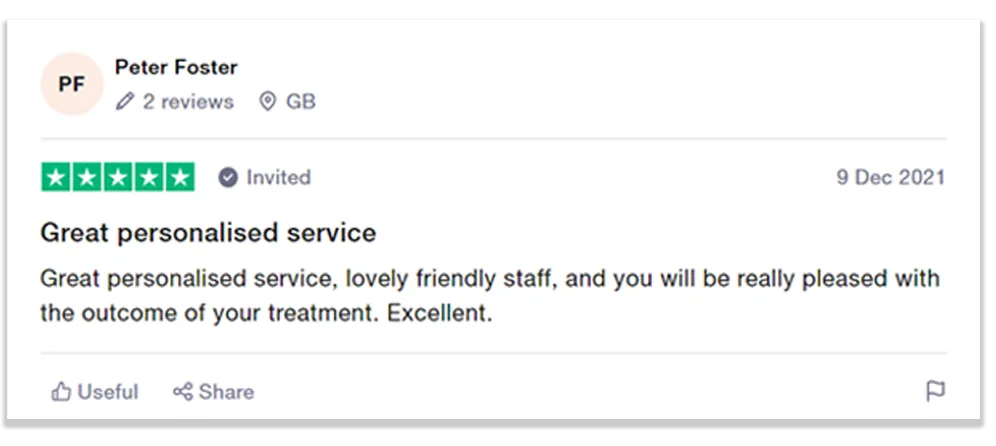
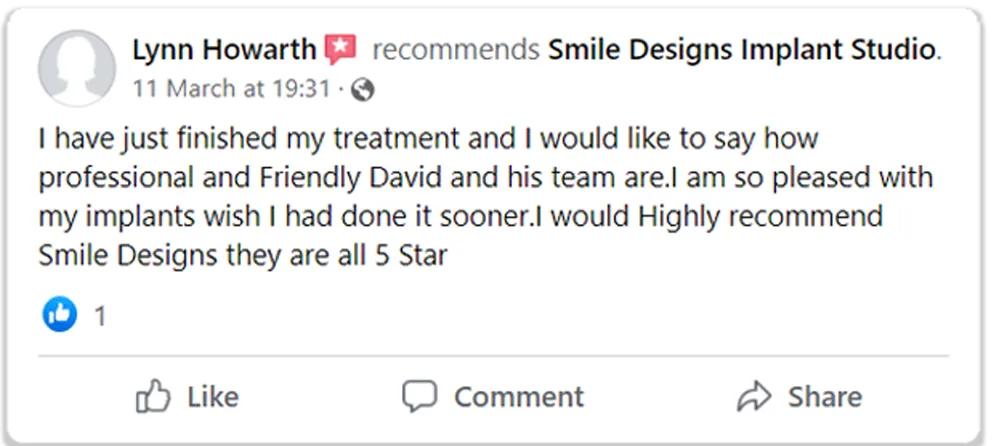
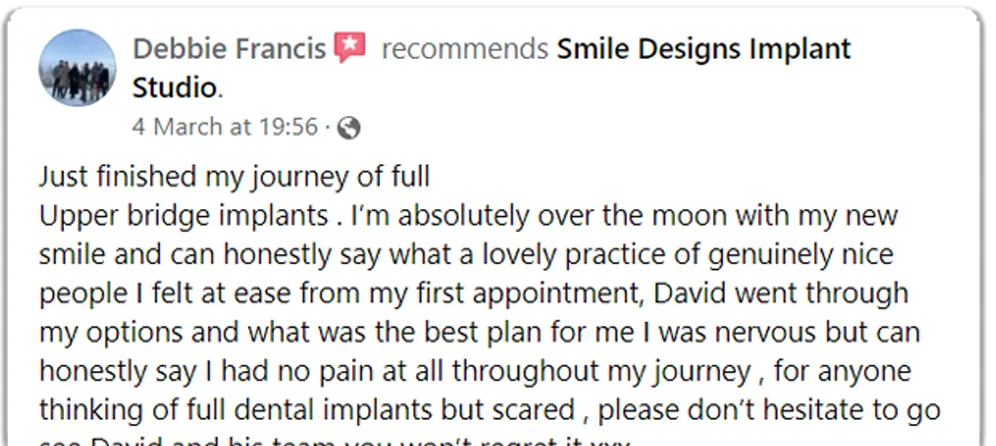
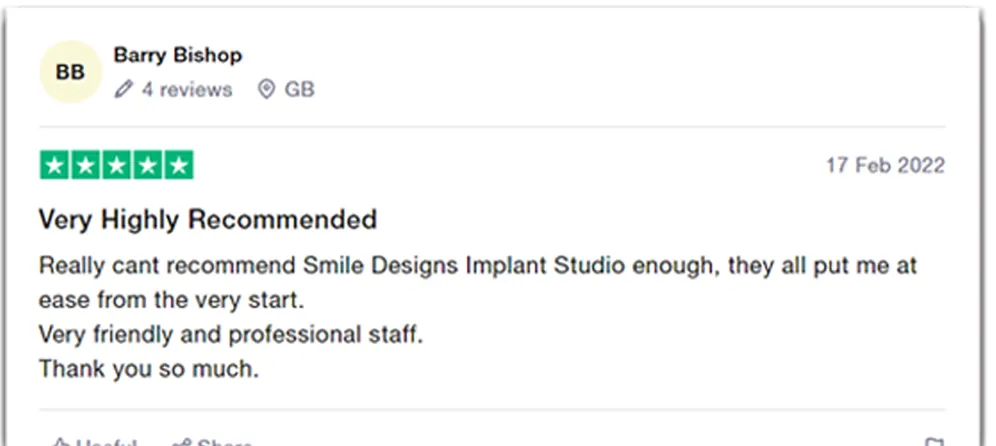
Frequently Asked Questions

Am I suitable for the 21D solution?
If you are generally fit and well and have majority loose, rotten or missing teeth in one or both jaws then you are potentially a likely candidate. This will be thoroughly assessed at your free full clinical assessment.

Who is not suitable for the 21D solution?
If you only need a single tooth. If you only need a few teeth but the majority of your teeth are healthy. if you want your teeth removed for purely cosmetic reasons but they are fundamentally healthy, If you are generally unfit and unwell. If you are a heavy smoker.

When will I be able to have a clinical assessment?
Once you have spoked to a client coordinator over the phone in most cases clinical assessment will be within the 1 week

When will I be able to have surgery?
Usually no more than 3 weeks from clinical assessment. We need time to design and fabricate your surgical guides and prosthetics. Usually no more than 3 weeks from clinical assessment

How long do I need to rest after surgery?
Most patients are fine within 2 days with minimal pain and swelling. A small proportion of patients may require up to a week

How soon after surgery can I eat?
You can eat immediately but we recommend a relatively soft diet for the first 8 weeks.
Usually no more than 3 weeks from clinical assessment
Book Your Free Consultation Now
